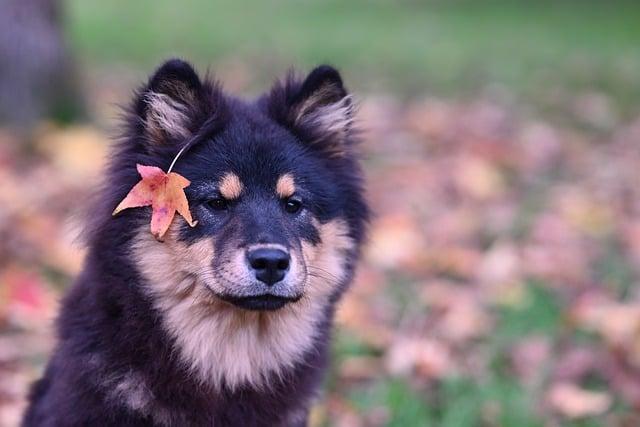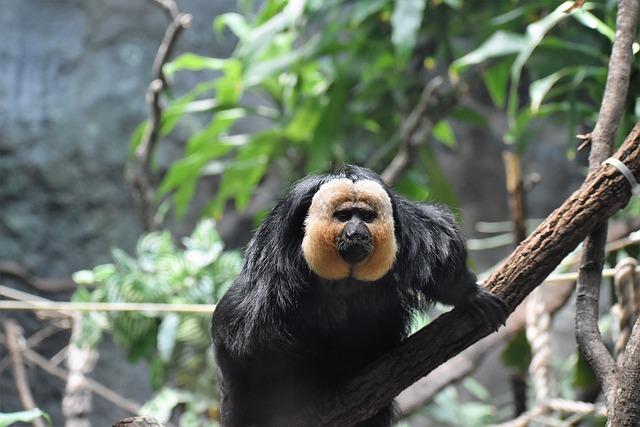In a quiet neighborhood, a family felt increasingly uneasy after a string of break-ins. They decided to invest in a guard dog, and after much research, they chose a Rottweiler. With its powerful build, keen instincts, and unwavering loyalty, the Rottweiler quickly became the family’s protector. One night, a shadowy figure approached their home, but the dog’s deep growl echoed through the darkness, sending the intruder fleeing. The family slept soundly, knowing they had the best scary guard dog by their side. Choose wisely; your safety depends on it.
Contents
- Understanding the Characteristics of an Effective Guard Dog
- Top Breeds Known for Their Protective Instincts
- Training Techniques to Enhance Your Guard Dogs Skills
- Evaluating Your Home Environment for the Ideal Guard Dog Match
- Q&A
Understanding the Characteristics of an Effective Guard Dog
When considering a guard dog, it’s essential to recognize the traits that contribute to their effectiveness. A well-rounded guard dog possesses a combination of physical strength, intelligence, and a protective instinct. These characteristics enable them to assess situations quickly and respond appropriately, ensuring the safety of their environment. A dog that is both alert and responsive can deter potential threats before they escalate.
Another critical aspect is the dog’s temperament. An effective guard dog should exhibit a **balanced demeanor**—confident yet not overly aggressive. This balance allows them to distinguish between genuine threats and harmless situations. Dogs that are overly aggressive can pose risks to innocent visitors or family members, while those lacking confidence may not provide the necessary protection. Therefore, selecting a breed known for its **stable temperament** is crucial.
Training plays a pivotal role in developing a guard dog’s capabilities. A dog that has undergone rigorous training will not only respond to commands but also learn to recognize and react to unusual behaviors or intrusions. Consistent training reinforces their protective instincts while ensuring they remain obedient and manageable. This combination of training and natural ability creates a formidable guardian that can effectively protect its home and family.
Lastly, the bond between the dog and its owner significantly influences its effectiveness as a guard dog. A strong relationship built on trust and respect encourages the dog to protect its family with unwavering loyalty. Dogs that feel secure and valued are more likely to exhibit protective behaviors. Therefore, investing time in building this bond is just as important as selecting the right breed and providing proper training.
Top Breeds Known for Their Protective Instincts
When it comes to choosing a guard dog, certain breeds stand out for their exceptional protective instincts. These dogs not only serve as loyal companions but also act as formidable protectors of your home and family. Their innate ability to sense danger and respond accordingly makes them ideal candidates for anyone seeking a reliable guardian.
Among the top breeds renowned for their protective nature are:
- German Shepherds: Known for their intelligence and versatility, German Shepherds are often employed in police and military roles. Their loyalty and courage make them excellent family protectors.
- Rottweilers: With a strong build and confident demeanor, Rottweilers are natural guardians. They are fiercely loyal to their families and can be both gentle and protective when needed.
- Doberman Pinschers: These sleek and powerful dogs are known for their alertness and speed. Dobermans are highly trainable and can be taught to respond to threats with precision.
- Belgian Malinois: Often used in security and military operations, the Belgian Malinois is agile and intelligent. Their strong protective instincts make them exceptional at guarding their territory.
Each of these breeds possesses unique traits that enhance their protective capabilities. For instance, German Shepherds are not only strong but also highly trainable, allowing them to adapt to various situations. Rottweilers, on the other hand, have a natural guarding instinct that makes them wary of strangers, ensuring that they remain vigilant at all times. Doberman Pinschers are known for their loyalty and can form strong bonds with their families, making them both loving companions and fierce protectors.
When selecting a guard dog, it’s essential to consider not just their protective instincts but also their temperament and compatibility with your lifestyle. Training and socialization play crucial roles in developing a dog’s protective abilities. A well-trained dog of any of these breeds can be a loving family member while also serving as a reliable guardian, ready to defend against any potential threats.
Training Techniques to Enhance Your Guard Dogs Skills
To elevate the skills of your guard dog, implementing a variety of training techniques is essential. One effective method is **positive reinforcement**, which encourages desired behaviors through rewards such as treats, praise, or playtime. This approach not only strengthens the bond between you and your dog but also fosters a sense of confidence and security in their abilities. By consistently rewarding your dog for alerting you to potential threats or responding to commands, you create a reliable and responsive protector.
Another crucial technique is **socialization**. Exposing your guard dog to different environments, people, and other animals helps them develop a well-rounded temperament. This exposure reduces anxiety and fear, allowing your dog to distinguish between normal situations and genuine threats. Regularly introducing your dog to various stimuli will enhance their ability to assess situations accurately, making them more effective in their protective role.
Incorporating **obedience training** is also vital for a well-functioning guard dog. Teaching commands such as “sit,” “stay,” and “come” establishes a foundation for more advanced training. A dog that understands basic commands is easier to control in high-stress situations. Additionally, practicing these commands in various environments will help your dog remain focused and responsive, even amidst distractions, ensuring they can act decisively when needed.
Lastly, consider engaging in **protection training** with a professional trainer. This specialized training focuses on teaching your dog to respond appropriately to threats while maintaining control and discipline. Techniques may include bite work, tracking, and alerting to intruders. By working with an expert, you can ensure that your guard dog develops the skills necessary to protect your home and family effectively, while also maintaining a balanced and well-adjusted demeanor.
Evaluating Your Home Environment for the Ideal Guard Dog Match
When considering the perfect guard dog for your home, it’s essential to assess your living environment thoroughly. The characteristics of your home, including its size, layout, and location, play a significant role in determining which breed will thrive as a protector. For instance, a spacious home with a large yard may be suitable for larger breeds that require ample space to roam and patrol, while smaller homes or apartments may benefit from breeds that are more adaptable to confined spaces.
Additionally, the safety of your neighborhood should influence your choice. If you live in a high-crime area, a more aggressive and alert breed may be necessary to deter potential intruders. On the other hand, if your surroundings are generally safe, a dog with a more balanced temperament might be sufficient. Consider breeds known for their protective instincts, such as:
- German Shepherds – Renowned for their intelligence and loyalty.
- Rottweilers – Powerful and confident, making them formidable guardians.
- Doberman Pinschers – Agile and alert, they are excellent watchdogs.
- Boxers – Playful yet protective, they can be both family-friendly and vigilant.
Another crucial factor is the lifestyle of your household. If you have young children or other pets, it’s vital to choose a breed that is known for its compatibility with family life. Some breeds, while intimidating in appearance, are gentle and affectionate with their loved ones. Look for dogs that have a reputation for being good with kids and other animals, ensuring a harmonious home environment. Breeds like:
- Bullmastiffs – Gentle giants that are protective yet loving.
- Belgian Malinois – Highly trainable and loyal, they bond well with families.
- Giant Schnauzers – Intelligent and protective, they are also great with children.
Lastly, consider your ability to train and socialize the dog. Some breeds require more extensive training and socialization to ensure they are well-adjusted and effective as guard dogs. If you are a first-time dog owner, it may be wise to select a breed that is known for its ease of training and adaptability. Investing time in training not only enhances the dog’s protective instincts but also fosters a strong bond between you and your new companion. Ultimately, the right match will depend on a careful evaluation of your home environment, lifestyle, and commitment to training.
Q&A
-
What breeds are considered the best scary guard dogs?
Some of the top breeds known for their guarding abilities include:
- Rottweiler: Known for their strength and loyalty.
- German Shepherd: Highly intelligent and versatile in protection work.
- Doberman Pinscher: Agile and alert, making them excellent protectors.
- Bullmastiff: Powerful and protective, with a calm demeanor.
-
How do I choose the right guard dog for my home?
Choosing the right guard dog involves considering:
- Size: Larger breeds often deter intruders more effectively.
- Temperament: Look for breeds that are protective yet trainable.
- Living Environment: Ensure the breed fits your space and lifestyle.
- Training Needs: Some breeds require more training and socialization than others.
-
Are scary guard dogs safe for families?
Yes, many scary guard dogs can be safe for families when properly trained and socialized. It’s essential to:
- Start training early: Socialization from a young age helps them become well-rounded.
- Supervise interactions: Always monitor interactions between your dog and children.
- Provide consistent training: Reinforce positive behavior to ensure safety.
-
What training do guard dogs need?
Guard dogs require specific training to be effective and safe, including:
- Basic obedience: Commands like sit, stay, and come are fundamental.
- Protection training: Teaching them to recognize threats and respond appropriately.
- Socialization: Exposing them to various environments, people, and animals.
- Continuous reinforcement: Regular training sessions to maintain skills and behavior.
choosing the right guard dog is crucial for your safety and peace of mind. A well-trained, loyal breed not only protects your home but also serves as a loving companion. Invest wisely, and ensure your family’s security with the best scary guard dog.

大家好,我是彼得潘,專業的手法身體治療師。我喜歡探索和研究各種主題,並透過與人工智慧的合作分享專業、實用、有趣的文章。我們定期進行人工審核,以確保內容的準確性。如果您發現文章中有任何不準確的地方,請隨時與我們聯繫,我們會及時糾正。您可以透過 [email protected] 與我們聯繫。



